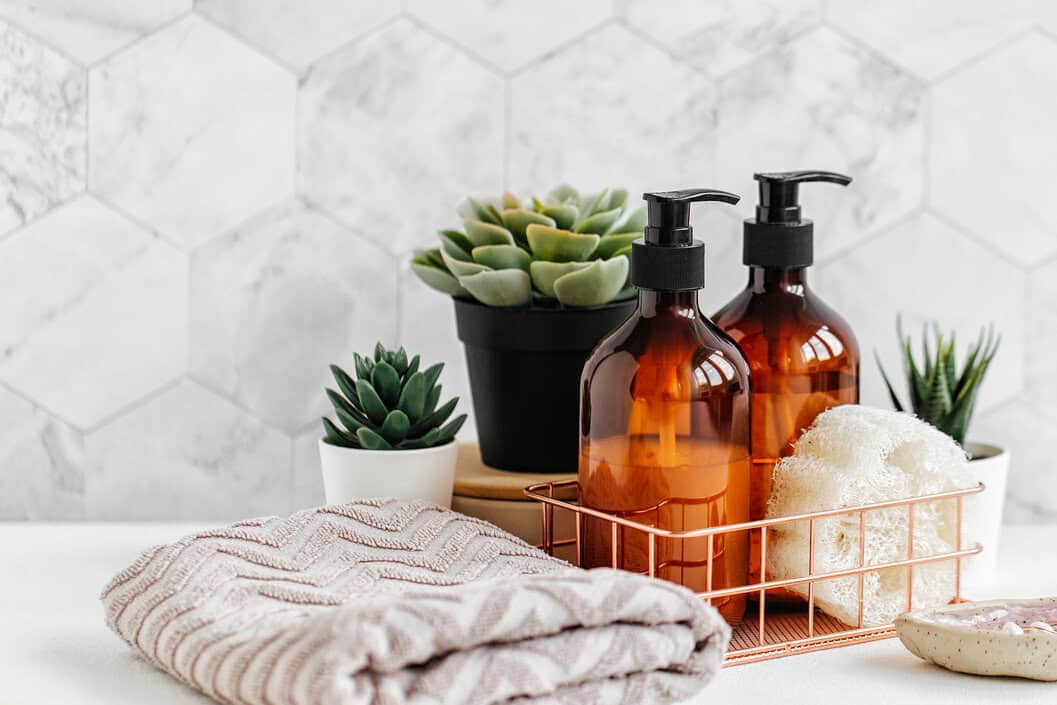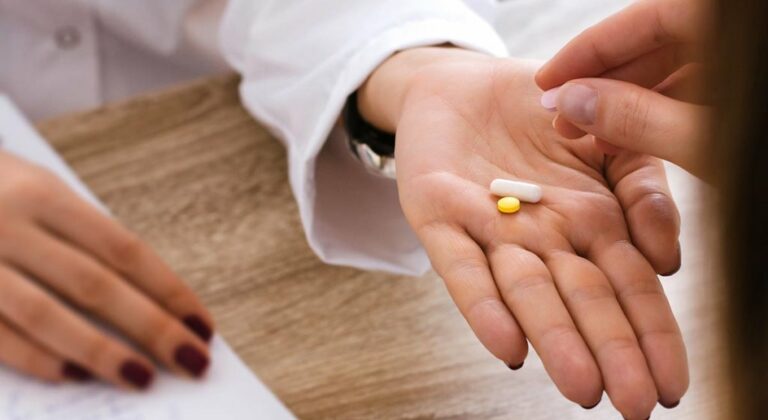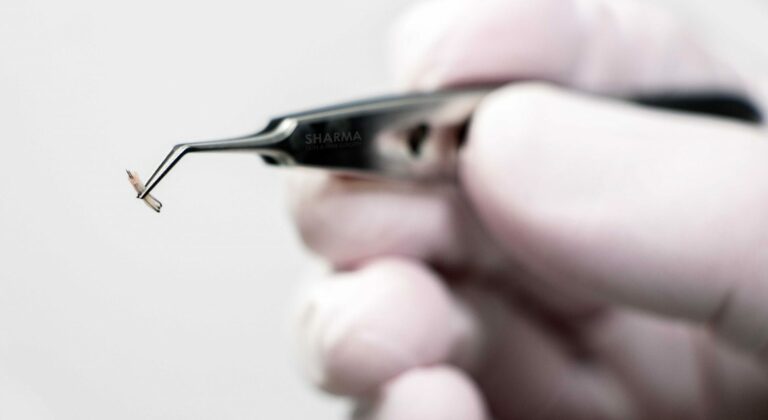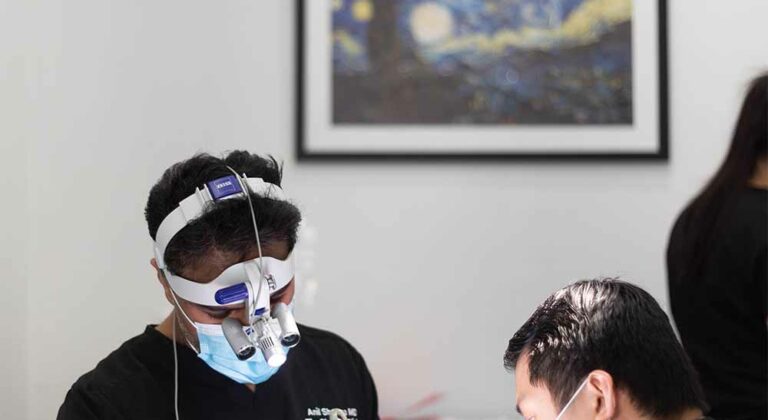Investing in a hair transplant can be a life-changing decision, and proper post-transplant care is crucial for achieving the best results. Your choice of shampoo is a key element of this care. The right shampoo can significantly benefit the healing process, the health of your transplanted hair, and the overall success of your procedure.
In this article, we’ll explore considerations for post-transplant shampoo, including what ingredients to look for and which to avoid.
Ingredients to look for in a post-transplant shampoo
Shampoos that contain gentle, soothing, and moisturizing ingredients can prevent swelling and irritation and support hair growth. Natural and anti-inflammatory agents like those listed below can help reduce swelling and itching, ensuring a smooth recovery.
- Aloe vera
- Chamomile
- Peppermint oil
- Saw palmetto
- Tea tree oil
- Zinc PCA
It is also worth incorporating ingredients that can keep the area moisturized. Look for shampoos that contain these ingredients to nourish the scalp and promote healthy hair growth:
- Argan oil
- Keratin
- Amino acids
- Biotin
Opt for mild, sulphate-free shampoos as these won’t strip the scalp of its natural oils and will help prevent dryness and irritation.
Ingredients to avoid in post-transplant shampoo
Certain shampoo ingredients can negatively impact the effectiveness of a hair transplant and your results. Avoid the following ingredients when choosing a post-operation shampoo:
- Harsh sulphates and detergents: These can strip the scalp of its natural oils and lead to dryness and irritation.
- Parabens and synthetic fragrances: Both parabens and synthetic fragrances can cause allergic reactions and irritate the sensitive scalp.
- Alcohol and other drying agents: Drying out the scalp can hinder the healing process.
- Dyes and colorants: These can irritate the scalp and potentially damage the transplanted hair follicles.
- Caffeine: When caffeine enters the blood circulation it has a generalized stimulant effect that can interfere with the results of hair transplantation.
- Allergens: Some shampoos may contain allergens that can cause a sensitive reaction on your scalp, leading to inflammation and delayed healing. This could also increase the risk of your hair transplant failing. It’s crucial to read the ingredient list carefully and avoid products with allergens. It’s always a good idea to patch-test a new shampoo on your wrist before using it on your scalp.
Other considerations for post-transplant shampoo
Here are some other key considerations to factor in when choosing a post-op shampoo:
pH balance
The pH scale measures how acidic or alkaline a substance is, with a range from 0 (highly acidic) to 14 (highly alkaline). Your scalp has a natural pH of around 5.5, which is slightly acidic. This slightly acidic environment helps maintain a healthy balance of microorganisms on your scalp and protects it from harmful bacteria and fungi. It’s therefore a good idea to aim for a shampoo with a pH close to that of your scalp (typically around 5.5).
Surgeon’s recommendations
Your surgeon may recommend specific shampoo brands or formulations tailored to your individual scalp’s healing needs. This personalized approach ensures optimal post-operative care and promotes a healthy recovery. Factors such as the hair transplant technique used, as well as your unique scalp sensitivity, can influence the most suitable shampoo choice.
Antiseptic properties
To minimize the risk of infection, especially during the critical initial weeks following surgery, surgeons often recommend using shampoos with antiseptic properties. These specialized shampoos help to reduce the presence of harmful bacteria on the scalp and surgical site.
Tips for post-transplant hair care
Below are some key post-transplant hair care tips to ensure a smooth recovery and support healthy hair growth:
- Be gentle when washing: You can typically begin washing hair around day three to five post-surgery, but it’s crucial to be as gentle as possible. Use lukewarm water and avoid rubbing or scrubbing as this can damage the delicate new grafts.
- Resist the urge to pick at scabs: As your scalp heals, scabs may form around the grafts. Resist the urge to pick or scratch them; they will naturally fall off.
- Nourish your hair: Use a gentle, fragrance-free conditioner to keep your hair hydrated and manageable. Consider using leave-in serums or hair oils to provide additional nourishment and protect your hair from damage. However, always consult your surgeon before using any hair products.
- Avoid heat styling: Minimize the use of heat styling tools like hair dryers, curling irons, and straighteners, as excessive heat can damage your hair and cause scalp irritation.
- Maintain a healthy diet: A balanced diet rich in vitamins, minerals, and protein is essential for healthy hair growth.
- Stay hydrated: Drink plenty of water to keep your scalp and hair moisturized.
- Avoid alcohol and smoking: Smoking can restrict blood flow to the scalp, hindering hair growth. Meanwhile, excessive alcohol intake can dehydrate your body and negatively impact hair health.
BOOK NOW
Talk to a Hair Transplant Expert
Are you looking for the most effective treatment plan to reverse the effects of hair loss? Dr. Sharma has a long-lasting commitment to offering the best services in the industry. Not only is he experienced with hair loss treatment, but he is passionate about helping each patient receive excellent results.
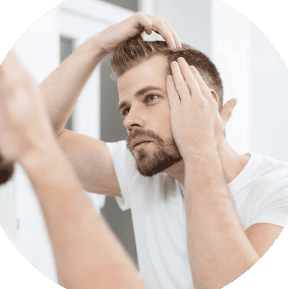
SOURCES
- https://pubmed.ncbi.nlm.nih.gov/28611994/
- https://www.researchgate.net/publication/379850542
- https://ajps.uomustansiriyah.edu.iq/index.php/AJPS/article/view/774
- https://pubmed.ncbi.nlm.nih.gov/37850332/
- https://pubmed.ncbi.nlm.nih.gov/21336476/
- https://pubmed.ncbi.nlm.nih.gov/18681154/
- https://journals.sagepub.com/doi/10.3109/10915818409021274
Share this:
Medically reviewed by
Updated on
Have a question?
Find out how we can help you look feel your absolute best
Contact us 780-476-7970